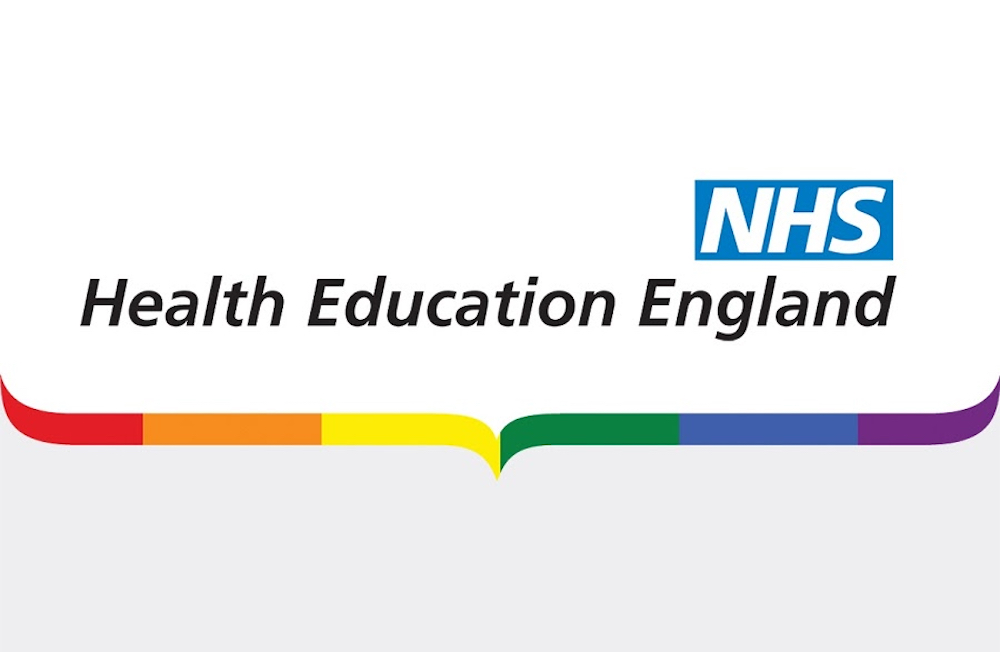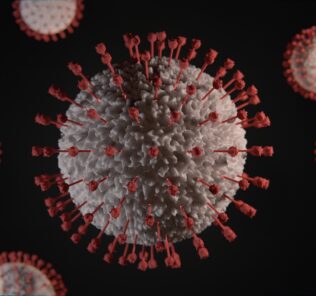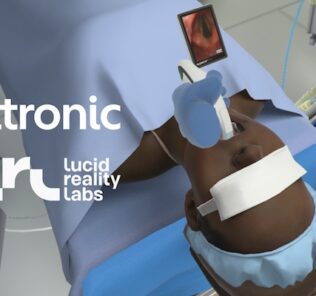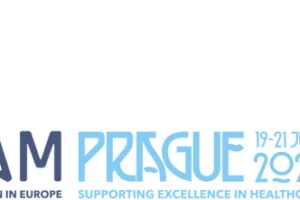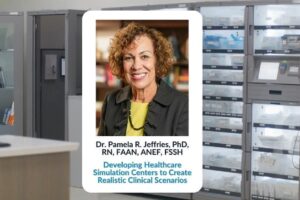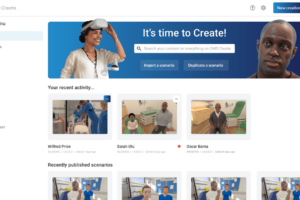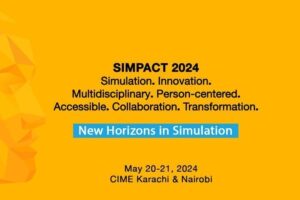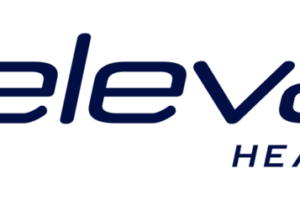Health Education England Medical Simulation Resources
Health Education England (HEE) is part of the publicly-funded healthcare system of the United Kingdom, the National Health Service (NHS). The goal of HEE is to support the delivery of excellent healthcare and health improvement to patients and the public by ensuring that the workforce has the right numbers, skills, values and behaviors at the right time and in the right place. To provide healthcare professionals and learners with the tools necessary to most efficiently acquire these skills, HEE has made a number of resources available to the clinical simulation training and education community.
HEE believes that clinical simulation is able to improve the quality of healthcare within today’s dynamic but resource-constrained world. However, HHE notes that this potential will be more achievable to implement, and have a more meaningful impact, if there is a systemwide commitment to coordination and collaboration that promotes equity of access to resources, rapid sharing and adoption of best practices, and robust evaluation of interventions at scale to demonstrate value-on-investment. For this reason, the public agency offers the document, “Enhancing education, clinical practice and staff wellbeing. A national vision for the role of simulation and immersive learning technologies in health and care.”
This document gives clarity on definitions and descriptions of simulations and immersive technologies, which we hope will enable consistency and cohesion. The intention is to promote dialogue and to develop the conditions that will support systemwide alignment and integration of simulation-based interventions, in order to meet the workforce and care quality demands of healthcare organizations and local partnerships. The publication is aimed at system and organizational leaders, commissioners, regulators, professional bodies, public and patient representatives, and academic and industry partners.
Sponsored Content:
The HEE National Framework for Simulation-Based Education (SBE), published in 2018, describes the vision and expectations for a national approach to the design and delivery of high-quality, effective SBE across England. The framework outlines five guiding principles to help align a needs-led and outcomes-driven approach to SBE that fits within the remit of HEE, and which can be applied to the full spectrum of simulation and immersive-learning technologies that are available.
Another available HEE resource is a suite of short videos that has been produced to help raise awareness of different simulation modalities. These videos cover topics such as perinatal mental health, cardiothoracic simulation, touch surgery, and more.
HEE Technology Enhanced Learning Team
HEE’s Technology Enhanced Learning (TEL) team uses digital technology to make learning easier for those working in the NHS and the wider health and care workforce, for the benefit of patients and the public. The team’s work is based on the principles of intelligence, engagement, innovation and value. The TEL team is developing the Learning Hub. The TEL team’s work also includes leading the simulation-based education project, managing HEE e-Learning for Healthcare (e-LfH), helping to enable pilot and innovation projects that include immersive technologies and other techniques, and developing digital education resources and workforce development tools.
Sponsored Content:
In 2020, HEE TEL commissioned a brief study to reflect on how the simulation community supported the NHS response to the first wave of the COVID-19 pandemic. Key lessons are highlighted in relation to strategic and operational mobilization of expertise, and resources to meet local and regional needs. This response was acknowledged as rapid and agile, addressing immediate workforce re-skilling requirements, and ‘stress-testing’ the design of new environments and working methods. Recommendations for future practice are made, recognizing the benefit of enhancing future coordination and collaboration across organizational and geographical boundaries that exist in health and care.
HEE TEL has also developed some important guidance regarding the implications of COVID-19 for SBE. For example, one document is available which describes practical tools and techniques to ensure appropriate risk management for learners, educators and support staff. This includes national good/best practice examples to help maintain the provision of SBE in a safe manner.
HEE TEL has committed to provide a national, multi-professional faculty development program for the simulation and immersive learning technology community. This is particularly relevant during the COVID-19 pandemic, when so many faculty members are being recalled to clinical duties. This online program will be modeled on the successful Australian NHET-Sim program. Faculty Development Guidance supports this work, and has been modeled on the guiding principle within the simulation-based education framework.
The agency’s Specialty Training Gaps project offers several important pieces of guidance that can be utilized to support postgraduate specialty training for many trainees. ‘How to Develop a VR360 Film’ is a comprehensive tool which highlights suitable equipment, and provides extensive advice on production for learners who are developing their own simulation and immersive technology capabilities. Part 2, which focuses on post-production, is currently in development.
NHS Learning Hub
The Learning Hub is a repository for sharing resources, and includes blended approaches to remote and face-to-face learning. The digital platform provides easy access to a wide range of education and training resources for the health and care workforce. Resources on the Learning Hub are contributed by the health and care workforce and are not reviewed by Health Education England.
In the Learning Hub, users can contribute digital resources (including e-learning, video, audio, images, documents, web links, articles etc.), and search and access the variety of learning resources that have been contributed by organizations and the health and care workforce. In the future, the Learning Hub will also encourage discussions to take place around the learning resources and networks, to focus on areas of shared interest to maximize opportunities for collaboration, and to realize the potential of the resources.
The Learning Hub is designed based on users’ needs, and was developed using an agile, iterative approach; testing ideas with users and using their feedback to learn and improve. More features will continue to be added during the public beta phase to provide a comprehensive learning experience for users.
COVID-19 Tool Kit
The HHE COVID-19 tool kit for safe simulation in health and care offers guidance and principles of best practice in healthcare simulation-based education and training. This document describes how HEE is responding to COVID-19, in respect of its remit to set standards and provide educational leadership in simulation-based education (SBE).
The agency’s aim is to ensure all face-to-face SBE is designed, delivered and monitored with the safety and well-being of staff, faculty and learners as a priority. The principles within this guidance document will be reinforced by accessible, practical tools and techniques to help implement appropriate risk management and blended educational approaches that help offer safe face-to-face learning where required.
In November 2020, HEE also released the publication, “A rapid report to identify key lessons from the initial response of the UK simulation community to the COVID-19 pandemic.” This rapid response research project had several aims:
- To identify the nature, scope, and scale of response activities that were undertaken by the U.K. simulation community in the immediate pandemic response
- To explore the nature and ways in which existing policies, processes, networks, and structures — both formal and informal — had an impact on that response
- To assimilate key lessons from this period that may enhance our ability to maintain a state of readiness to respond to the fluctuating levels of challenge from the existing pandemic, or from any future large-scale emergencies or crises
- To offer recommendations relevant to simulation and immersive technology-based learning as part of the wider endeavor in the NHS and Higher Education Institutions (HEI) sectors of re-establishing
The report highlights several recommendations to ensure this level of recognition and engagement with the simulation community is further sustained and assisted, by strengthening opportunities for effective communication, coordination and collaboration across traditional boundaries that exist in healthcare.
Learn More About Health Education England
Lance Baily, BA, EMT-B, is the Founder & CEO of HealthySimulation.com, which he started while serving as the Director of the Nevada System of Higher Education’s Clinical Simulation Center of Las Vegas back in 2010. Lance is also the Founder and acting Advisor to the Board of SimGHOSTS.org, the world’s only non-profit organization dedicated to supporting professionals operating healthcare simulation technologies. His co-edited Book: “Comprehensive Healthcare Simulation: Operations, Technology, and Innovative Practice” is cited as a key source for professional certification in the industry. Lance’s background also includes serving as a Simulation Technology Specialist for the LA Community College District, EMS fire fighting, Hollywood movie production, rescue diving, and global travel. He and his wife Abigail Baily, PhD live in Las Vegas, Nevada with their two amazing daughters.
Sponsored Content:



